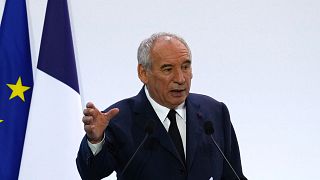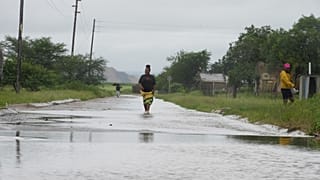New Caledonia
After 10 days of negotiations, including a final overnight marathon, France has reached an agreement with New Caledonia. The deal grants the South Pacific territory more autonomy — but stops short of the independence sought by many indigenous Kanaks.
President Macron hailed the deal as historic but it still needs final approval in New Caledonia. If passed, it would create a state of Caledonia within the French Republic incscribed in the French constitution and a Caledonian nationality alongside French nationality.
The talks stemmed from deadly rioting last year prompted by proposed changes to electoral rules that pro-independence groups said would marginalize Indigenous voters.
The territory has held three referenda on the question of independence, with voters each time opting to remain with France.
A special congress will be held to finalize next steps. Media reports say they could include more sovereignty for New Caledonia over international affairs, security and justice.
The accord could also eventually allow New Caledonians to change the territory’s name, flag and hymn.
Negotiators stressed the importance of rehabilitating and diversifying New Caledonia’s indebted economy, which depends heavily on nickel mining, and making it less reliant on the French mainland.
France colonized the Pacific archipelago in the 1850s, and it became an overseas territory after World War II, with French citizenship granted to all Kanaks in 1957.










![Senegal stun Morocco in AFCON 2025 final to retain continental crown [Football Now]](https://images.euronews.com/articles/stories/09/61/76/30/320x180_cmsv2_64f668d8-9f3a-50c3-9477-243de96f35d5-9617630.jpg)
00:56
Outcry as France's Louvre museum hikes prices for most non-European visitors
01:00
Farmers leave Paris but tensions rise in Toulouse over EU-Mercosur trade deal
Go to video
Algeria passes law declaring French colonisation a state crime, demands apology and reparations
01:00
Farmers protest at Macron's second home over EU trade deal
01:00
Macron loses focus amid ‘dancing microphones’ before EU summit
01:07
France reveals role in Benin’s foiled coup